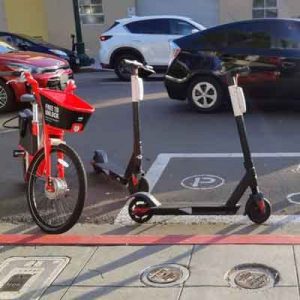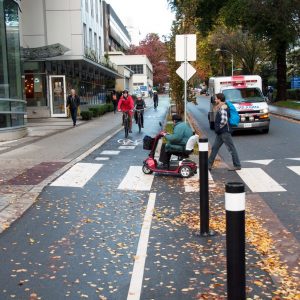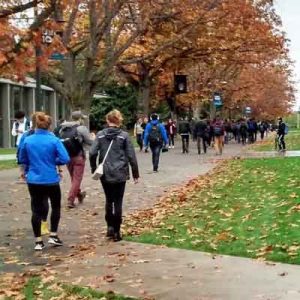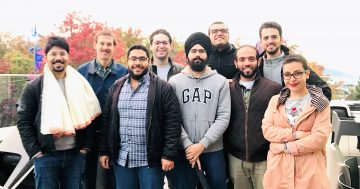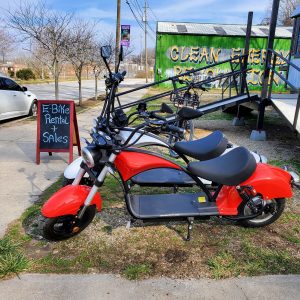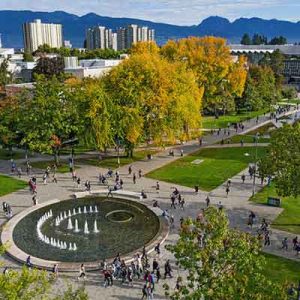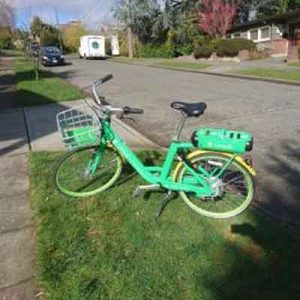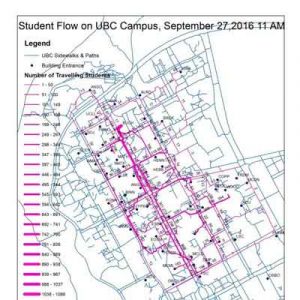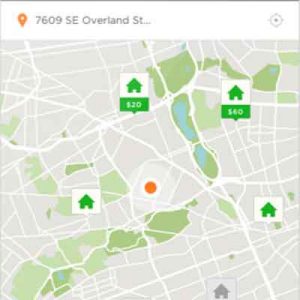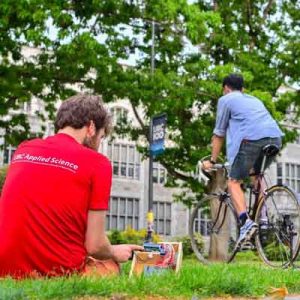Human-electric hybrid vehicles: Implications of new non-auto mobility options for street design and policy in the Vancouver region
New mobility options create opportunities to address enduring challenges in the transport sector related to traffic congestion, air pollution, climate change, public health, energy consumption, and more. At the same time, they present new challenges to urban transport systems where there is already competition for space and access among road users, which can spill over […]
Perceptions of Comfort and Safety for Non-Motorized Road User Interactions in Vancouver
This study examined different perspectives on pedestrian and cyclist interactions on city streets in Vancouver. We investigated systematic differences in the perceptions of interactions among stakeholders using semi-structured interviews and video review by community stakeholders, transportation professionals, and the general public. Dimensions of interaction severity were considered and contrasted, including yielding compliance, traveller comfort, and and […]
REACT Laboratory for comprehensive study of urban active travellers in controlled and uncontrolled environments
Many Canadian cities have ambitious goals to increase the share of travel by “active” modes of transportation – primarily walking and bicycling. For example, Vancouver has a non-auto mode share goal of two-thirds of trips by 2040, with the largest percentage change in bicycle trips. But active travellers have long been neglected in most transport […]
Development of an electric bicycle incentive program at the municipal scale
Electric bicycles (E-bikes) are an emerging mode of travel in Canadian cities. With declining purchase prices for E-bikes and increasing cycling infrastructure in many cities, E-bike use is increasing for personal and business travel – and even for some local deliveries. The City of Victoria is making significant investments in cycling, walking and public transit […]
Experienced and Perceived Safety of Pedestrians and Cyclists on the UBC Campus
As cycling is an increasingly common mode of transportation in many cities, conflicts between cyclists and other road users present a growing safety concern. While bicycle-motor vehicle conflicts are most often studied, conflicts between cyclists and pedestrians is a growing issue, particularly where cyclists and pedestrians share multi-use paths. The University of British Columbia (UBC) Vancouver […]
Web data extraction and mining to help cities understand the impacts of new mobility services
The transportation sector is entering an era of increasingly both “big” and “proprietary” data. New technological trends are emerging that shift the most critical sources of transportation system data from roadside infrastructure to personal and vehicle-based communications. This trend has been moving data and knowledge from the public realm to the private, inhibiting public debate […]
Managing inter-class student travel on a large university campus
In this study we analyze student travel between classes on the UBC campus, investigating issues in distances and routing, with consideration of different travel options and modal availability (by foot, wheelchair, skate, personal bicycle, shared bicycle, etc.). A wide range of solutions and countermeasures are explored, including course scheduling strategies, changes to facility design and […]
Information and communication technology for arborists to reduce urban truck travel and emissions
ChipDrop is a new information and communication technology connecting urban arborists with gardeners seeking wood chips. The new service has the potential to increase efficiency for arborists and in the process reduce urban truck travel and emissions. In this project, we use data provided by ChipDrop to analyze changes in operational efficiency and estimate reductions […]
Field Bicycle Coast-Down Testing
For bicycles and other human powered vehicles, it is relevant to understand the links between energy expenditure and travel behavior (e.g., route and speed choices) as well as travel impacts (e.g., pollutant intake/uptake and health effects). Energy expenditure and breathing rate are related to the resistance forces that bicyclists must overcome, in particular rolling resistance (i.e. the resistance due to […]
